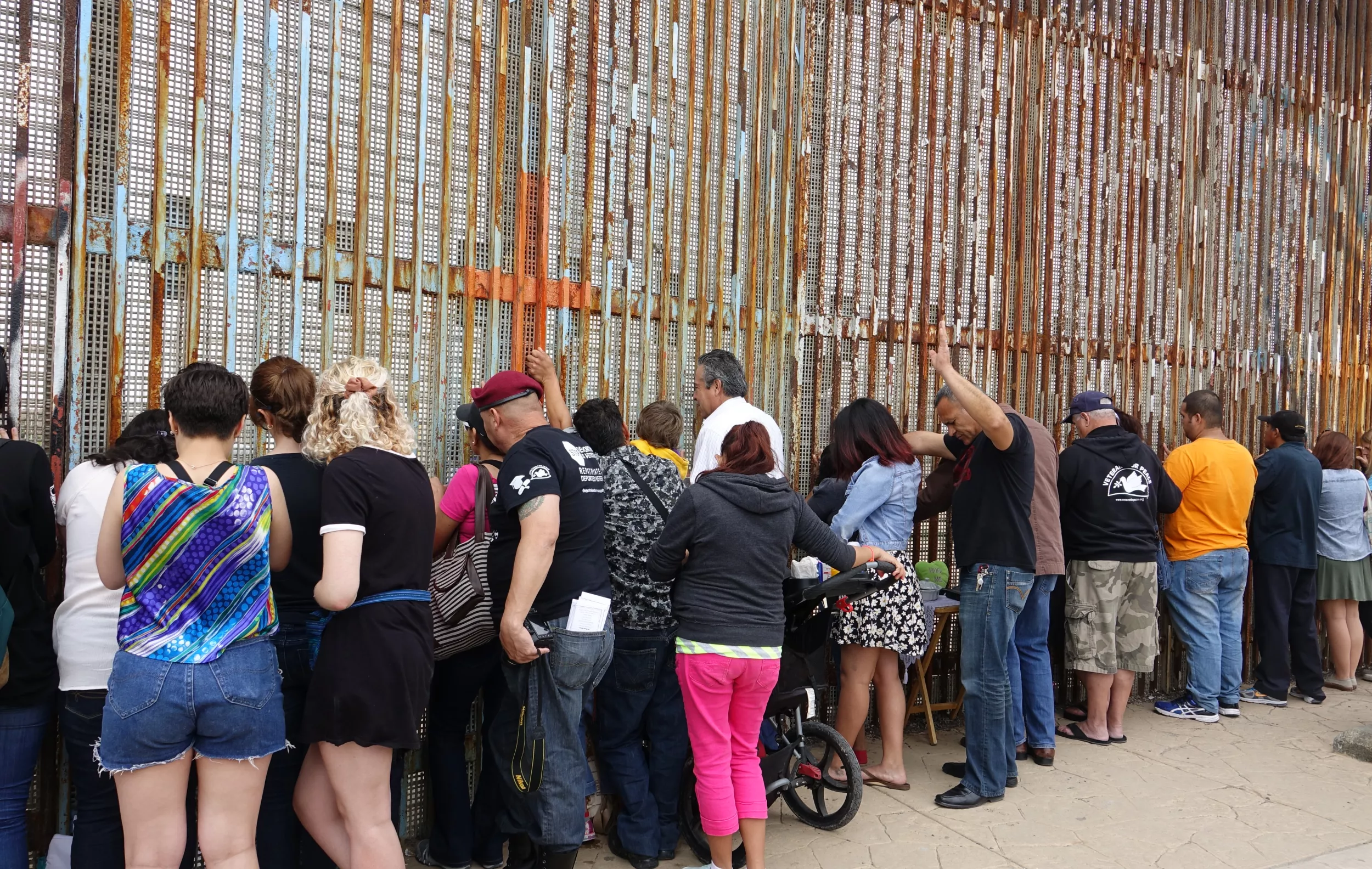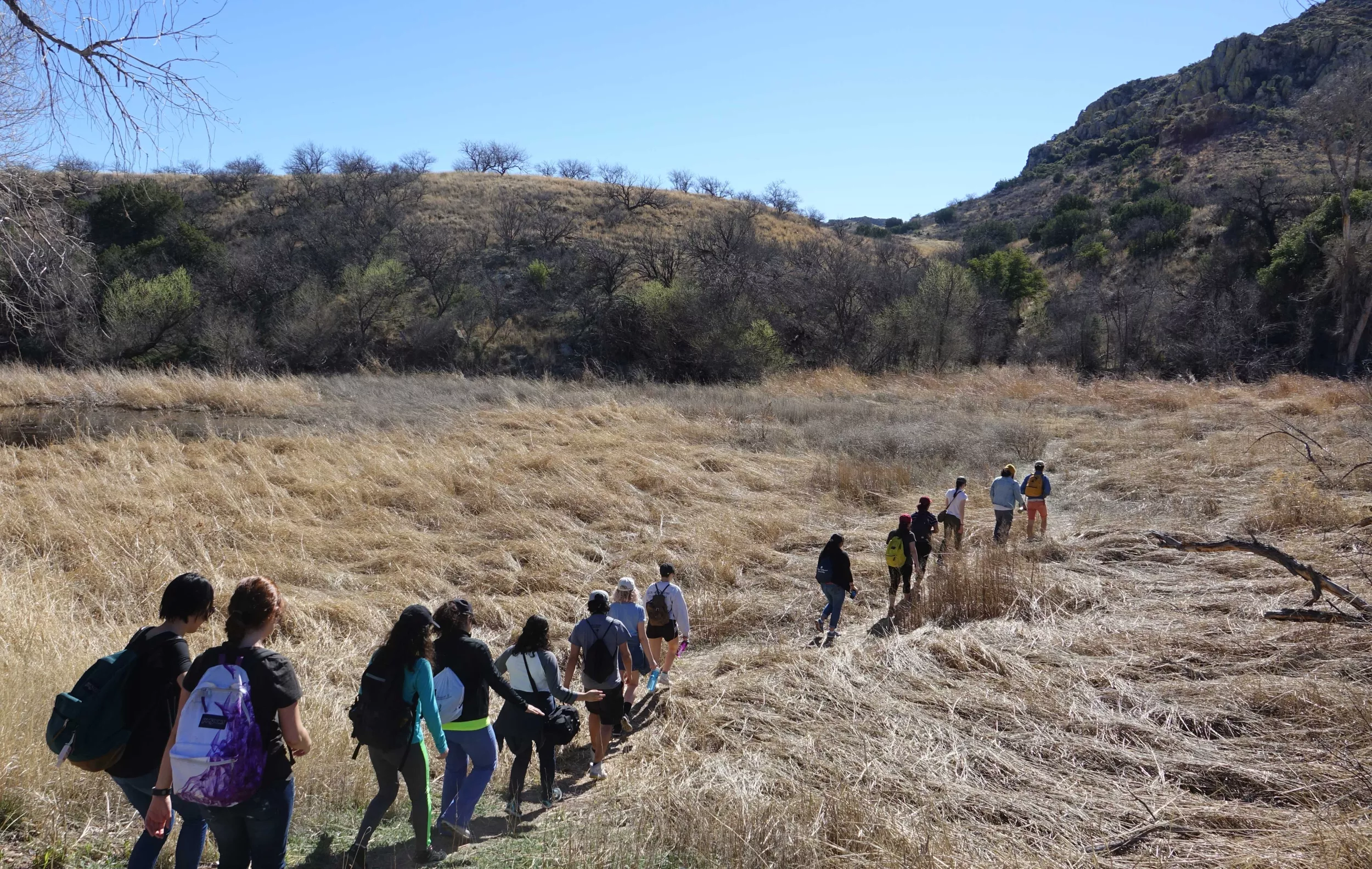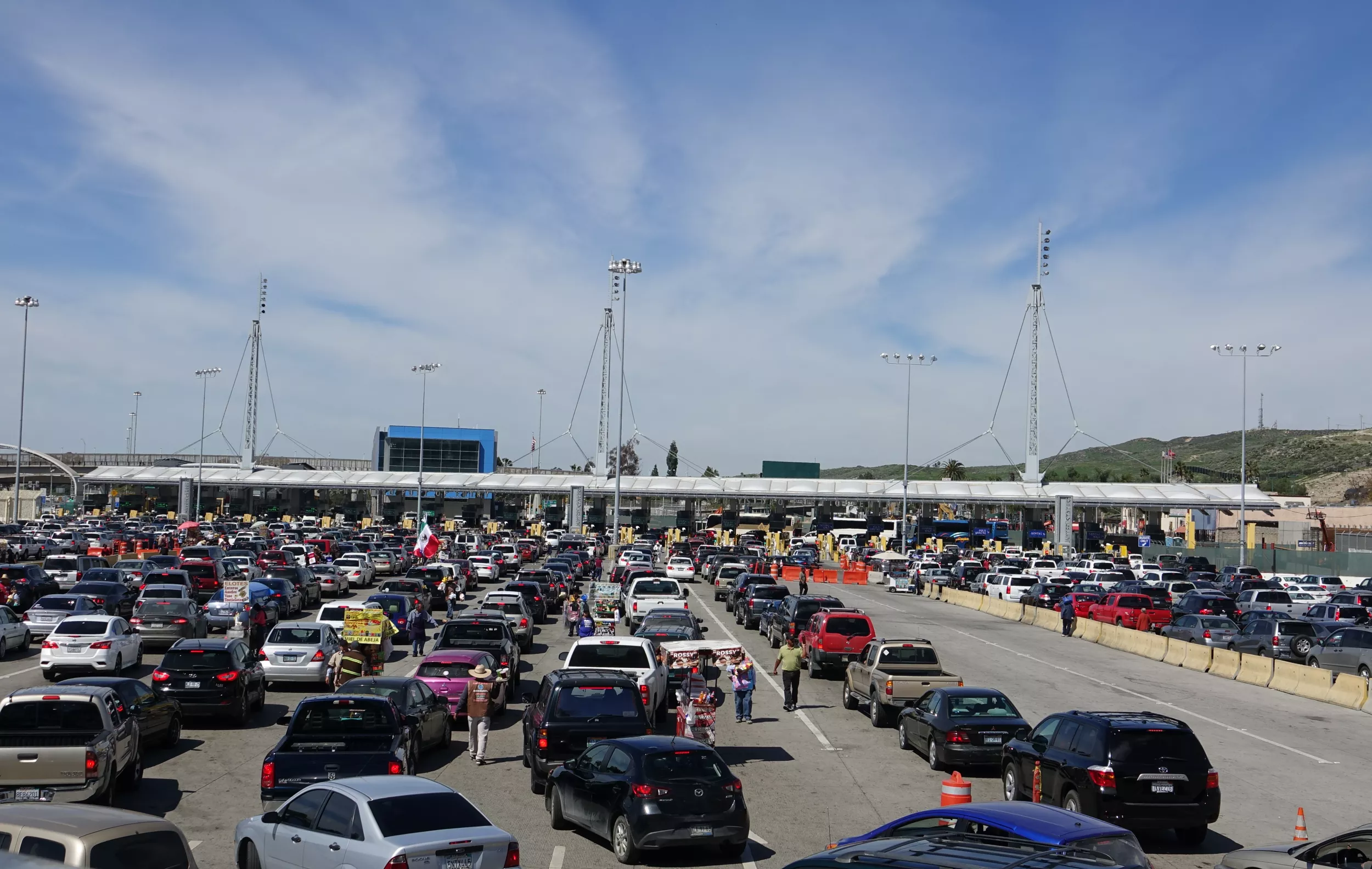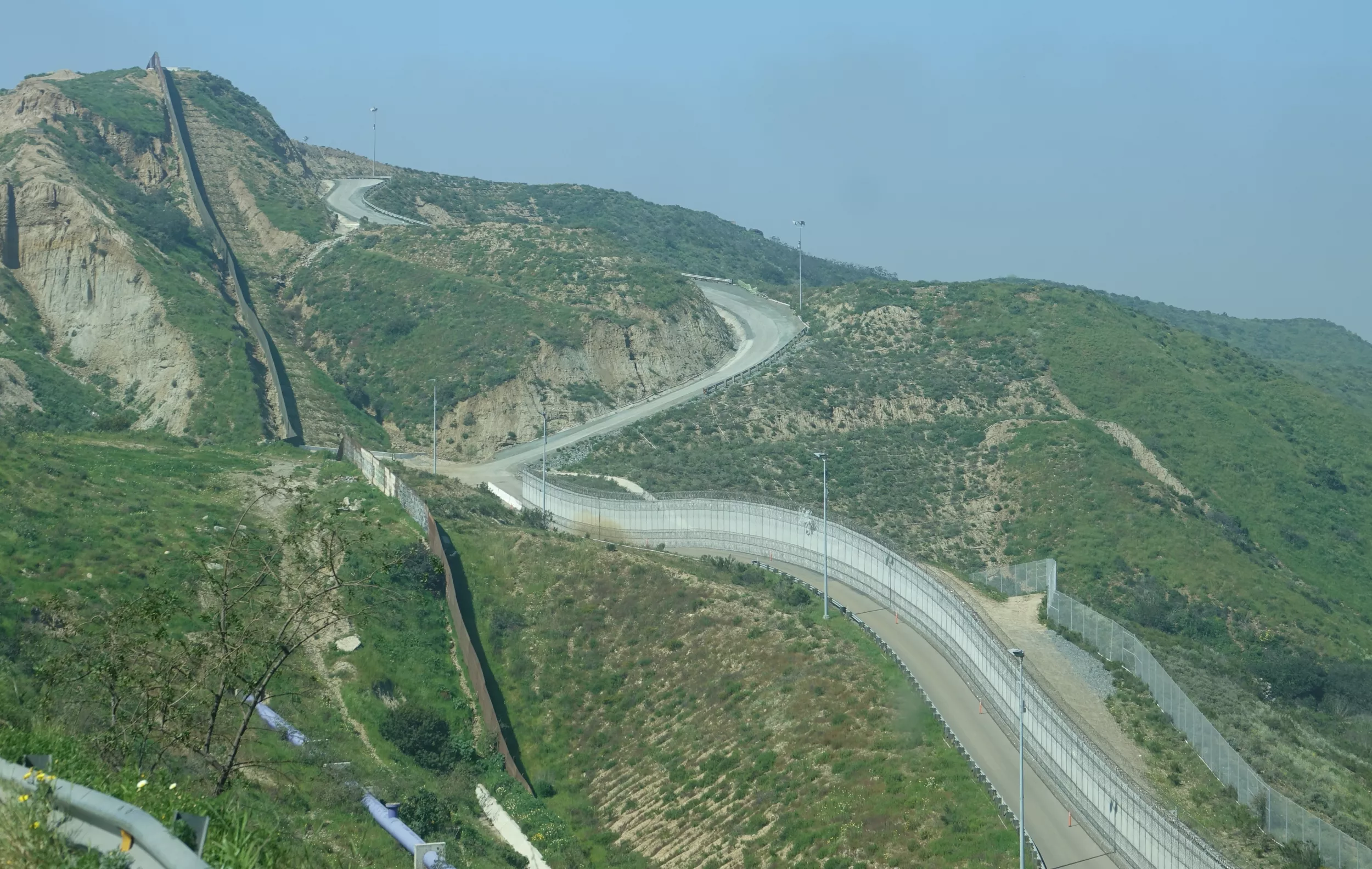The 360° course cluster “Migrations and Borderlands” offered 15 students an exciting investigation into the migration of different national contexts and historical moments.
Courses in this cluster included:
- English: Latina/o Culture and the Art of Migration taught by Assistant Professor of English Jennifer Harford Vargas
- Sociology: Sociology of Migration (A Cross-Cultural Overview of Contemporary Challenges) taught by Assistant Professor of Sociology and Co-Director of Latin American, Iberian, and Latina/o Studies Verónica Montes
- Spanish: Migration in the Hispanic World taught by Associate Professor of Spanish Rosi Song
The 360° focused particularly on the complex factors shaping migrations between Latin America and the United States, Latin America and Spain, and Asia and Latin America, as well as how migration is represented in literature and culture. They probed questions of imperialism, economic and political policies, xenophobic discourse, transnational belonging, cultural citizenship, and how individuals and families are transformed through the process of migration.
The cluster’s travel component was an eight-day trip over spring break to the U.S.-Mexican border. It included time in both Tucson, Arizona as well as Tijuana, Mexico. Students were able to critically examine first-hand the interplay between U.S. migration policy, globalization, social justice movements, and individual agency.
Sandra Torres ’19, a history and Spanish double major, cites their visit to the border wall as one of the most impactful experiences of her life.
“It truly opened our eyes even more to what we thought we already knew,” says Sandra. “I thought I was prepared, but I honestly wasn’t. Just seeing the long bars dominating the landscape outside my window… I was honestly shocked.”
The vision of the wall wasn’t the only thing that shocked Sandra and her classmates.
“We were told the story of an innocent teenager who was shot several times after ‘throwing rocks at the fence,’ which was highly unlikely due to the distance of the sidewalk he was on and the height of the fence. I also encountered a woman who comes to the wall every Sunday in hopes of seeing her daughter whom she was separated from 20 years ago. It was a very difficult moment for many of us,” she says.
In addition to visiting the border wall, the class’ itinerary was filled with activities such as sharing dinner with migrants at Casa del Migrante, walking along a desert migrant trail in Tucson with members of the organizations BorderLinks and No More Deaths, analyzing a production of La Calle at the Borderlands Theater, participating in a photography workshop at Hacienda del Rio, and meeting with an immigration lawyer.
Another core component of the trip was observing Operation Streamline, an initiative in which unauthorized border-crossers are all given sentences between 30-180 days. The students visited a federal courthouse in Tucson to witness their legal proceedings.
“The hard part was that the detainees were all in shackles from their wrists, waists, and ankles, making them look as if they were some kind of criminals, which they were definitely not,” says Sandra, for whom the experience was especially personal.
“Although my father is now a permanent resident of the U.S., he was undocumented when he immigrated to the country 20 years ago,” she says. “He too was detained and stood in those same shackles. Nothing hurt more than to know that nothing has changed over the last 20 years.”
At the conclusion of the trip, the students compiled their notes to send to the End Operation Streamline Coalition with the hope of abolishing this practice.
There are many more things the students of Migrations and Borderlands hope to do with their newfound knowledge. As a result, they have decided to start a club at Bryn Mawr on migration.
The fine details of the club are still in the works, but they plan to organize multiple branches— one that focuses on writing a magazine, one to produce an educational campaign, and one to create a short film. They also hope to collaborate with the Tuscon-based organization Mariposas Sin Fronteras. This branch will focus on providing support for detainees, such as visiting them and writing them letters. The club’s foremost mission is to offer several different ways a person can help the migrant cause.
The students are also presenting an exhibition in Canaday Library to concurrently showcase pictures from their trip alongside photos collected from El Colegio de La Frontera Norte. The exhibition will open April 24.
To learn more about their travels, view the class’ collective Instagram account here.
The 360° course cluster program is an interdisciplinary experience that creates an opportunity to participate in multiple courses connecting students and faculty in a single semester (or in some cases, across contiguous semesters) to focus on common problems, themes, and experiences for the purposes of research and scholarship.
Upcoming course clusters can be found here.



